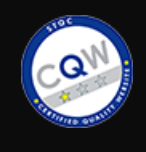KR ERP
The Java-based ERP system consists of various tightly integrated modules supporting all aspects of the working of various departments in a railway system. Below is a brief functionality description of each module:
1. Operation & Train Control – Manages all Arrival/Departure entries of trains at all stations. It is fully integrated with the CRIS-COA application, featuring Data Loggers and a GPRS-based Locomotive tracking system at all interchange points of KRCL.
2. Integrated Finance Accounting – Includes functionalities for Accounts Payable, Accounts Receivable, and core accounting functions such as Journal Vouchers, Bank Vouchers, and various reports. It facilitates Unit-wise Accounting for Receivables and Payables, Trial Balance, Profit-Centre wise revenue/expenditure accounting for profitability, Automatic GST and Income Tax remittance as per GST norms, and a Simplified Imprest Management Module. Online payments to beneficiaries are also enabled. Measurement Book and other bill forms are generated, checked, finalized, and stored online, linked to the contract module in Finance Accounting for measured quantities.
3. Traffic Accounts – Keeps track of all monetary transactions at a station and prepares station-level balance sheets, Part A, Part B, and 6A Part 1 & Part 2 reports.
4. Stores & Inventory – The module manages the procurement of materials and goods manufactured against Work Orders, starting from Purchase Requisitions, CGF preparation, Tendering, and culminating in the final Purchase Order (PO) issuance. It encompasses Local Inventory management, Material Receipts and Acceptance, and is integrated with the GeM portal to fetch Work Order details and map them with the KR Stores and Inventory Module for subsequent processing of material acceptance and payments. The payment process is carried out through the KRCL Finance System, with updates pushed back to the GeM portal. To enable real-time stock valuation and payment disbursal for procured goods, the module is seamlessly integrated with the KRCL Finance System.
5. Personnel Management – This module handles the entire spectrum of the Personnel Department’s functions, including Attendance, Leave, Disciplinary Actions and Appeals, Issue of Passes, Transfers, Quarter and Leased House allotment, Payroll, various claims, Automatic Recoveries and Arrears, Immovable Property Returns, Land Acquisition, and Land Loser records. It also manages the Annual Performance Appraisal System for KRCL employees, Employee Grievances, and the Foundation Day Award Finalisation process.
Additional features include photo and document uploads and the UMID module, which stores identity details of employees and their dependents for medical facilities and Railway Pass issuance. The Settlement Module automates the retirement settlement process, including the automatic calculation of gratuity, pension, and leave salary, with integrated workflows for capturing 'No Dues' and other deductions.
Essential pension management functions for retired employees, such as annuity quotation invitations and payments, have also been automated. The Voluntary Retirement (VRS) process is streamlined end-to-end—from application registration to approval and intimation.
This module forms the backbone of the KRCL ERP system, as it maintains the employee master data utilized by all other modules.
6. User Management – Manages Security Administration, User creation, Role creation, Function association, and other automated system administration activities of the entire ERP.
7. Health Management – Covers all activities of Health Units, from patient registration to examinations, lab tests, certificate issuance, details of Periodical Examinations, Ambulance Services, Referral Services, and account keeping of medicines and equipment up to the National Health Program. Users can access information related to medical reimbursements for both Indoor & Outdoor Treatment, employee family health data, and family planning details.
8. Rolling Stock Locomotive – Manages various activities in a diesel locomotive shed, including fuel and lubricating oil accounting.
9. Roll On-Roll Off (RO-RO) – Manages reservation activities at designated stations (Kolad, Verna, Suratkal) for truck transportation. Various MIS reports can be generated for business analysis.
10. Inspection Management – Covers scheduled and non-scheduled inspections, inspection compliance by relevant department authorities, and their status tracking. Master data for Inspection Schedules, Types, and Jurisdiction controls the system flow. Observations are tracked through weekly email alerts and daily reports of open issues updated on the KRCL intranet. Various MIS reports can be generated for analysis.
11. Station Complaint Management – Registers, tracks, and complies with station complaints. Top Management has a dashboard to monitor region-wise/station-wise complaints based on specific requirements.
12. Emergency Quota Management – Automates the process of EQ requests from employees and VIPs. KRCL employees can submit EQ requests and system generates an allotment chart based on built-in rules with a provision to override.
13. Vigilance Complaint Management – An online portal for lodging complaints to the KRCL Vigilance department. Complainants can submit complaints along with supporting documents online at the KRCL website. The system generates a complaint ID and password for status tracking.
14. Tour Program Monitoring – Manages tour and meeting details for executives, allowing executives and their Personal Secretaries to efficiently maintain Tour, Leave, and Meeting information. This system ensures clear visibility of executive schedules within the organization and reduces administrative burden.
---------------
Last Updated : 30/05/2025













